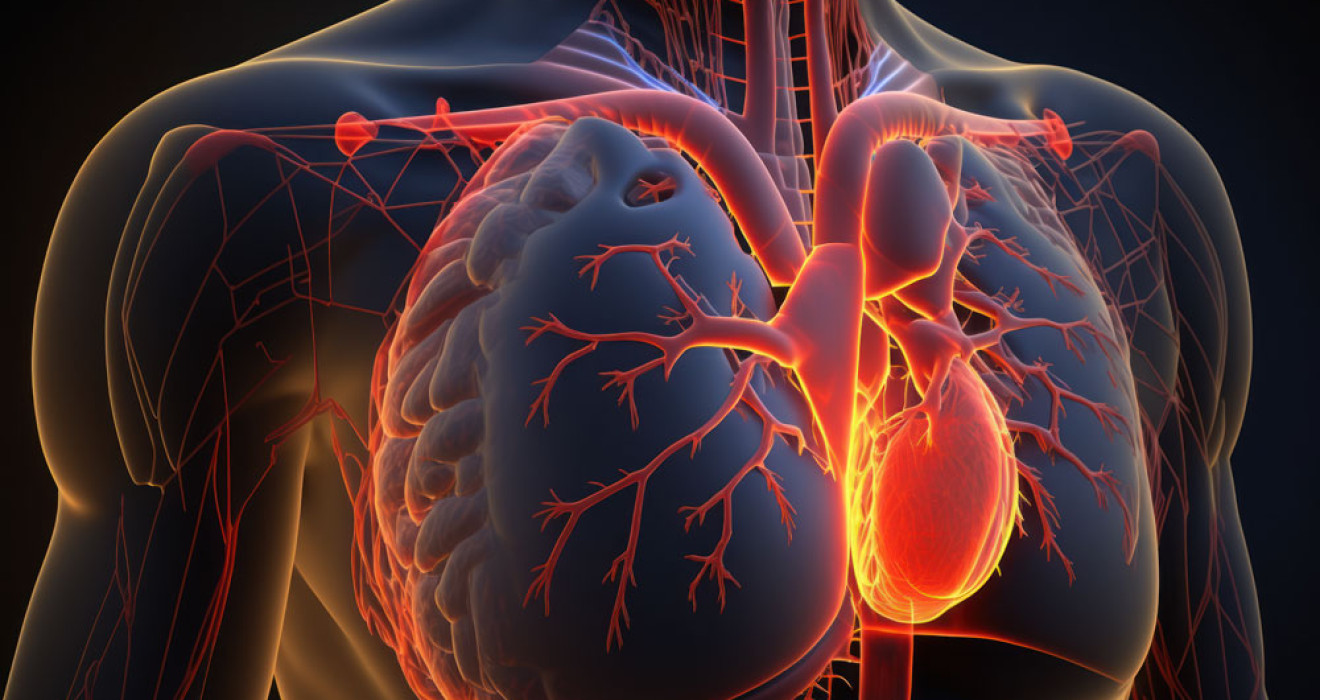
Angina (Cardiac Chest Pain)
Angina is a medical condition known as cardiac chest pain. It occurs when the heart muscle doesn't receive adequate oxygen and nutrients. It is typically described as a pressure or squeezing sensation in the chest.
What is Angina (Cardiac Chest Pain)?
Cardiac chest pain is a sensation of pain or tightness felt in the chest. This pain usually occurs when the heart does not receive sufficient oxygen.
It commonly develops as a result of coronary artery disease. The coronary arteries are the blood vessels that supply oxygenated blood to the heart. The underlying cause of it is often the narrowing or blockage of these coronary arteries.
What are the Angina Symptoms?
It is most commonly manifested as a feeling of pressure, pain, or tightness in the chest. The symptoms include the following:
- Shortness of breath or difficulty breathing
- Sweating
- Nausea or vomiting
- Dizziness
- Fatigue or a sense of tiredness
What are the Causes of It?
The most common cause of angina is coronary artery disease. Accumulation of plaque or narrowing of the blood vessels prevents the heart from receiving an adequate supply of oxygenated blood.
The risk factors leading to coronary artery disease include:
- High blood pressure
- High cholesterol levels
- Diabetes
- Smoking
- Obesity
- Sedentary lifestyle
- Family history of heart disease
What are the Angina Symptoms?
The symptoms of cardiac chest pain can vary from person to person. Most common symptoms include chest pain or discomfort, shortness of breath, and sweating.
The pain usually occurs during physical activity or can be associated with stressful situations. The symptoms typically last for a few minutes and subside with rest or medication.
What are the Angina Types?
Cardiac chest pain is classified into three main types, which are as follows:
- Stable Angina: It occurs during specific activities or stress.
- Unstable Angina: It does not follow a typical pattern and is unpredictable. It does not improve with rest or medication and often arises without a clear trigger.
- Variant (Prinzmetal) Angina: This is a rare type of angina that is usually associated with spasms of the coronary arteries.
Treating It (Cardiac Chest Pain)
Angina treatment aims to alleviate symptoms, improve the clarity of heart blood vessels, and prevent the progression of coronary artery disease. The treatment plan typically includes the following methods:
- Medications
- Lifestyle Changes
- Interventional Treatments (Angiography and/or Stent)
Frequently Asked Questions
-
It attacks usually last between a few minutes and 15 minutes. However, in some cases, they can be shorter or longer.
-
Cardiac chest pain is commonly described as an intense sensation of pressure, tightness, or heaviness in the chest. Some individuals may also describe this pain as sharp or burning.
-
The pain usually concentrates in the middle of the chest. However, it can radiate to the arms, shoulders, neck, jaw, or upper back.
-
Angina pain is typically associated with physical activity or stressful situations. It is relieved by rest or the use of nitroglycerin.
-
Unstable angina is a more severe condition compared to other types of it. As the name suggests, its symptoms are unpredictable and unstable.
-
Unstable angina usually does not follow a specific pattern and does not improve with rest or medication. Pain can occur even during rest, and the symptoms can be more intense.
-
Unstable angina increases the risk of a heart attack and may require urgent medical intervention.
-
Cardiac chest pain is a significant condition that should be taken seriously. Its symptoms can indicate the presence of coronary artery disease and the risk of a heart attack.
-
It occurs when the heart does not receive sufficient oxygen and is often a precursor to a heart attack. Therefore, a person diagnosed with it should be carefully monitored for heart health. Additionally, the patient should adhere to the recommended treatment plan provided by their doctor.


